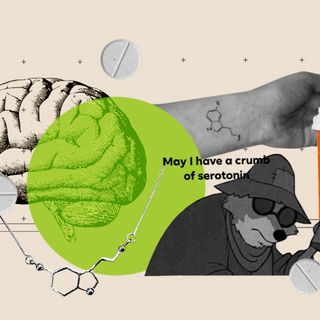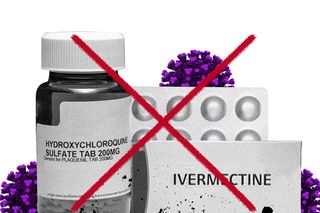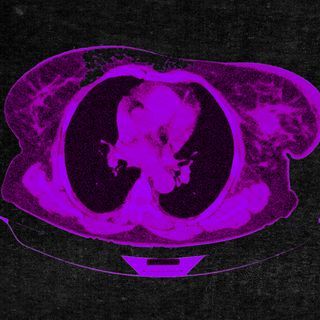
Revised Covid19 Guidelines Drop Use of Drugs for Mild Cases, Focus On Evidence‑Based Protocol
No medication, like hydroxychloroquine and ivermectin, should be administered in asymptomatic and mild infections, according to the latest advisory.

The revised government guidelines on how to treat, investigate, and monitor patients with Covid19 include an overhaul of medication and testing advisory — dropping the use of medicines, such as hydroxychloroquine and ivermectin, in asymptomatic and mild infections. Experts say this is a major win for evidence-based medicine during the pandemic, as directions so far perched upon the misuse of drugs and over-reliance on under-researched methods.
The Directorate General of Health Services (DGHS), which comes under the Union Ministry of Health & Family Welfare, uploaded the latest advisory on its website on May 27. The comprehensive chart divides guidelines for asymptomatic, mild, moderate, and severe cases — broadly noting that no medication is required for asymptomatic patients and dissuading unnecessary tests such as CT scans in early stages. They also urge caution against the indiscriminate use of Remdesivir, “as this is only an experimental drug and has a potential to harm,” and detail the doses of steroid and anti-fungal injections needed.
For asymptomatic patients, the guidelines explicitly note “no investigation” and “no medication” are required — which excludes a slew of medications previously prescribed, such as hydroxychloroquine, ivermectin, doxycycline, zinc, and multivitamins. The overuse of these drugs spawned a severe shortage and resulted in high prices and black marketeering — despite experts cautioning about over-reliance. For these cases, the advisory emphasizes following Covid19 appropriate behavior, self-monitoring, and teleconsultations.
Related on The Swaddle:
In mild cases, the guidelines recommend self-monitoring for fever and breathlessness, along with checking oxygen saturation (SpO2) periodically. They advise the use of anti-pyretic and anti-tussive drugs for symptomatic relief. “No other Covid-19 specific medication required. Patient may have to be investigated further if symptoms persist or deteriorate,” the guidelines note.
For moderate and severe cases, the guidelines specify clear instructions on steroid doses and anticoagulants. The misuse of steroid injections is linked to rising cases of mucormycosis and diabetes in India. “Steroids are not indicated and are harmful in asymptomatic and mild cases of Covid19,” the guidelines note. “Steroids should be used at the Right Time, in Right dose and for Right duration.” This is in line with advisories issued by doctors and public health experts regarding steroid therapy.
The guidelines also offer clear instructions on the use of remdesivir and tocilizumab, anti-inflammatory drugs, for “highly selected patients” — noting they should be used only if the patient is critically ill. This is a much-needed clarification in light of several doctors prescribing the drug as an all-encompassing solution and patients desperately attempting to source them.
“I have had to explain (almost apologetically) to patients why I wasn’t prescribing Favipiravir, HCQ, Doxy, Azee, Ivermectin, vitamins and wasn’t doing HRCTs. Now, I have a guideline from the government that backs my EBM [evidence-based medicine] choices,” Dr. Lancelot Pinto, a pulmonary disease specialist at P.D. Hinduja Hospital, Mumbai, says in a tweet.
Ivermectin so far was being prescribed by doctors under the table and was also actively endorsed by the Goa government. Various international and national advisories had noted there is no compelling evidence that merits the use of ivermectin as a preventative measure for Covid19. A similar story played out with other treatment options, which often end up creating an echo chamber on social media.
Experts note the current guidelines respond to growing concern and critique from the scientific and medical community who had long been advocating for evidence-based orders. “As an advocate of rational prescribing and no-nonsense evidence-based medicine, I am relieved that our voices have been heard by those who are formulating these guidelines,” Rajeev Jayadevan, former president of the Indian Medical Association, wrote in a tweet.
Although the revised order is a welcome clarification on Covid19 protocol, experts also note the focus on science while forming guidelines was long overdue — and should have been preemptive to avoid chaos and unscientific treatment plans. Last month, more than 700 scientists and medical professionals wrote a letter to the Indian government calling for transparent public health policies as the second Covid19 wave raged in intensity. “Policy has to be based on evidence and not the other way around — I am worried that science was not taken into account to drive policy,” Shahid Jameel, chair of INSACOG, told Reuters.
It might be too little too late, but it’s a starting point. Experts underscore the need to promptly respond to new evidence and case analysis, to keep up with the dynamic pace of the virus and encourage informed medical practices. “Let’s hope this becomes a living document that is regularly updated,” Dr. Pinto adds.
Saumya Kalia is an Associate Editor at The Swaddle. Her journalism and writing explore issues of social justice, digital sub-cultures, media ecosystem, literature, and memory as they cut across socio-cultural periods. You can reach her at @Saumya_Kalia.
Related


Trial Drug Reduces Recurrence of Genetic Breast Cancer in Women, New Study Shows
